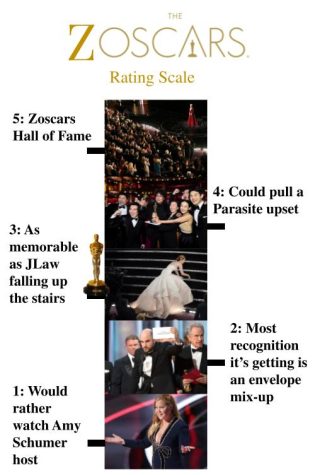“Dahmer” drama: How the true crime genre is a true flop
Art By: Ellanor Splinter. The romanticization of serial killers is the most extreme form of “I can fix them” there is.
October 17, 2022
Only a few weeks since its premiere, “Dahmer—Monster: The Jeffrey Dahmer Story” has already broken Netflix’s most-streamed series record, surpassing last year’s record-setter “Squid Game.” The show is a retelling of serial killer Jeffrey Dahmer’s murders during the 1980s told through the point of view of his victims. But recent controversy surrounding the victim’s families and an influx of murder-inspired media begs the question: is true crime more exploitative than entertaining?
A recent clip gone viral compares real footage of Rita Isbell, the sister of one of Dahmer’s murder victims, giving her victim impact statement at Dahmer’s trial to a dramatized clip from the show. What fans didn’t know while watching the scene is that Isbell was not contacted by Netflix about the production of the series. In her essay from Insider, Isbell discusses feeling uncomfortable after the premiere of the show. “It brought back all the emotions I was feeling back then,” she said. Other family members echoed the sentiment. “My family (the Isbell’s) are pissed about this show. It’s retraumatizing over and over again, and for what?” Eric Perry, cousin of Isbell, said in a statement on Twitter.
In addition to bothering the families of Dahmer’s victims, viewers are disturbed by Netflix’s advertisement choices for the show. Users on Twitter have responded negatively to a promotional tweet reading, “Can’t stop thinking about this disturbing scene from DAHMER where one of Jeffrey Dahmer’s victims finally manages to escape….” User Jessica Fisher replied saying the brand is treating the scene like “water-cooler gossip on a Friday morning,” showing how Netflix’s insensitive advertising trivializes the tragedy of a boys murder.
Furthermore, members of the LGBTQ+ community petitioned Netflix to remove the show from the LGBTQ section. Although Jeffrey Dahmer was a gay man, the categorization recived backlash because the series made being gay seem dangerous, and many felt Dahmer should not be a representation of the rest of the community.
On the other end of the world’s reception is an onslaught of TikTok users romanticizing scenes from the show, such as Dahmer drunkenly dancing, or adding Taylor Swift songs over clips of the show. Some have gone so far as to sexualize Dahmer and comment on his attractiveness. Luckily, the minority of users falling for Dahmer, or more specifically Evan Peters’ portrayal as the killer, have been met with bewilderment and outrage.
Though it’s the most commercially successful adaptation, “Dahmer” is far from the only movie to tackle the infamous serial killer. In 2017, Ross Lynch starred in “My Friend Dahmer” and Jeremy Renner portrayed Dahmer in the 2002 film “Dahmer.” And Netflix is no stranger to retelling true crime cases. Zac Efron played serial killer Ted Bundy in the 2019 Netflix original “Extremely Wicked, Shockingly Evil and Vile,” directed by Joe Berlinger, who created a docuseries on Ted Bundy that same year. When a story has already been told multiple times, it’s repetitive and exploitative to do it again.
In general, the casting decisions in true crime productions tend to come off as a grab at additional viewership. For example, using conventionally attractive and high-status actors like Peters and Efron to play serial killers leads more people to talk about the attractiveness of criminals, rather than the crimes they have committed.
Though true crime has always been prevalent in the media, it’s reached an all time prevalence in current pop culture. Today the Spotify podcast charts have a specific category dedicated to the top true crime podcasts. Searching the name of any killer yields enough content to last a whole lifetime, which is more overwhelming than anything.
Consequently, It’s unclear who Netflix’s target audience was for this show or why they made it at all. Though the series makes a few failed attempts to reframe the Dahmer story and return dignity to Dahmer’s victims, it’s evident the company’s concern was profit from true crime junkies and serial killer lovers. It takes no consideration to harm inflicted to victims’ families or the general public, resulting in a true crime to television.













